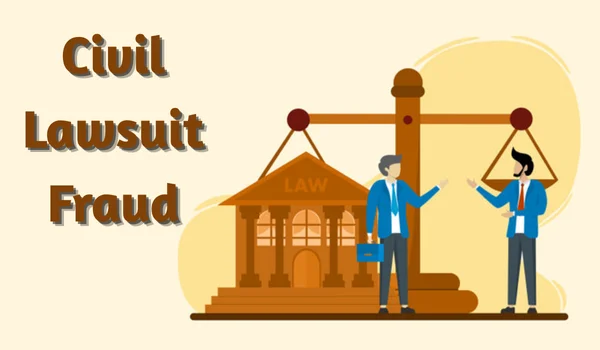Civil lawsuit fraud refers to deceptive practices employed by individuals or entities to gain an unfair advantage, typically for financial gain, in legal proceedings. Unlike criminal fraud, which involves state prosecution and potential imprisonment, civil fraud cases are initiated by private parties seeking monetary compensation or other remedies. This article delves into the nature of civil lawsuit fraud, its legal implications, and notable case examples to provide a comprehensive understanding.
What Constitutes Civil Lawsuit Fraud?

Civil fraud encompasses a range of dishonest actions aimed at deceiving another party to their detriment. Common forms include:
- Fraudulent Misrepresentation: Knowingly providing false information to induce another party into a contract or agreement.
- Concealment of Facts: Deliberately hiding material information that would influence another party’s decision-making.
- False Documentation: Submitting forged or altered documents to mislead others.
To succeed in a civil fraud lawsuit, the plaintiff must typically prove:
- A false representation or concealment of a material fact.
- Knowledge of the falsity by the defendant.
- Intent to deceive.
- Justifiable reliance by the plaintiff on the false representation.
- Resulting harm or damages to the plaintiff.
Legal Remedies in Civil Fraud Cases
Victims of civil fraud may seek various remedies, including:
- Compensatory Damages: Monetary compensation for actual losses suffered.
- Punitive Damages: Additional amounts awarded to punish the defendant and deter future misconduct.
- Rescission: Cancellation of a contract or agreement.
- Injunctive Relief: Court orders preventing the defendant from continuing fraudulent activities.
The specific remedies available depend on the jurisdiction and the nature of the fraud.
Notable Case Example: New York v. Trump
A significant example of civil lawsuit fraud is the case of New York v. Trump, where the New York Attorney General accused Donald Trump and his company of inflating asset values to secure favorable loans and insurance terms. In 2025, a New York appeals court upheld the finding of fraud but overturned a $500 million penalty, deeming it excessive. The court maintained restrictions on Trump and his sons’ business activities in New York, highlighting the serious implications of fraudulent conduct in business practices.
Preventive Measures and Legal Protections
To mitigate the risk of falling victim to civil lawsuit fraud, individuals and businesses should:
- Conduct Due Diligence: Thoroughly investigate parties before entering into agreements.
- Maintain Accurate Records: Keep detailed and truthful documentation of all transactions and communications.
- Seek Legal Counsel: Consult with attorneys when dealing with complex contracts or unfamiliar parties.
Legal protections against civil fraud include statutes such as the Racketeer Influenced and Corrupt Organizations (RICO) Act, which allows for civil suits against individuals engaged in fraudulent schemes.
Conclusion
Civil lawsuit fraud undermines the integrity of legal and business systems, leading to significant financial and reputational harm. Understanding its nature, legal implications, and preventive measures is crucial for safeguarding against such fraudulent activities. By staying informed and vigilant, individuals and businesses can better protect themselves from the adverse effects of civil fraud.

 Oliver Johnson is LawScroller’s Senior Legal Correspondent specializing in civil litigation, class actions, and consumer lawsuit coverage. He breaks down complex settlements and court decisions into clear, practical guidance for readers.
Oliver Johnson is LawScroller’s Senior Legal Correspondent specializing in civil litigation, class actions, and consumer lawsuit coverage. He breaks down complex settlements and court decisions into clear, practical guidance for readers.